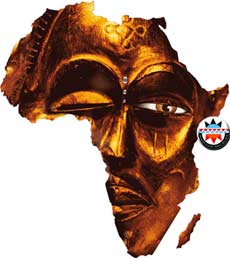My Mind Words Paper [Search results for poetry]
31st Fernando Rielo World Prize for Mystical Poetry
Black Mediterranean: Poetry Segment of Lagos Black Heritage Festival 2012
Call for Submissions - Stanford's Mantis Journal Issue 11: Poetry in an Adopted Language (worldwide)
The Witter Bynner Poetry Translation Grant (USA)
Islamic Writers' Alliance Annual Poetry Contest 2012
The $1,900 ASiS International Essay and Poetry Writing Competition for Students (worldwide)
Other Voices Poetry Prize (for Harvest Journal's international contributors)
Call for Articles for Anthology: African American Poetry and Ecocriticism
Harvest International welcomes poetry submissions in any language
Abuja Writers Forum's Guest Writer Session with Cecilia Kato (Nigeria)
Griot-Stadler Prize for Poetry 2011-2012 for Black US Poets

Call for Submissions: "Sound of Poetry" Issue of Poetry Potion (South Africa)
Poetry Foundation Ghana Online Poetry Contest (Ghana/ worldwide)
Deadline Extension: 2012 Sol Plaatje European Union Poetry Award (South Africa)
Loudthotz Open Poetry Reading at the Orange Academy (Nigeria)
Call to Submit Poetry/ Prose: Poetry Potion's "Re-Censored" Issue (Africa-wide)
The 15th Poetry Africa International Poetry Festival Opens October 17th

International PEN Kenya Poetry Reading at Kenya National Theatre
Free to Enter: The $500 Blue Mountain Arts Poetry Card Contest
Deadline June 1 | Call for Submissions: Contrary Magazine (paying market/ worlwide)
